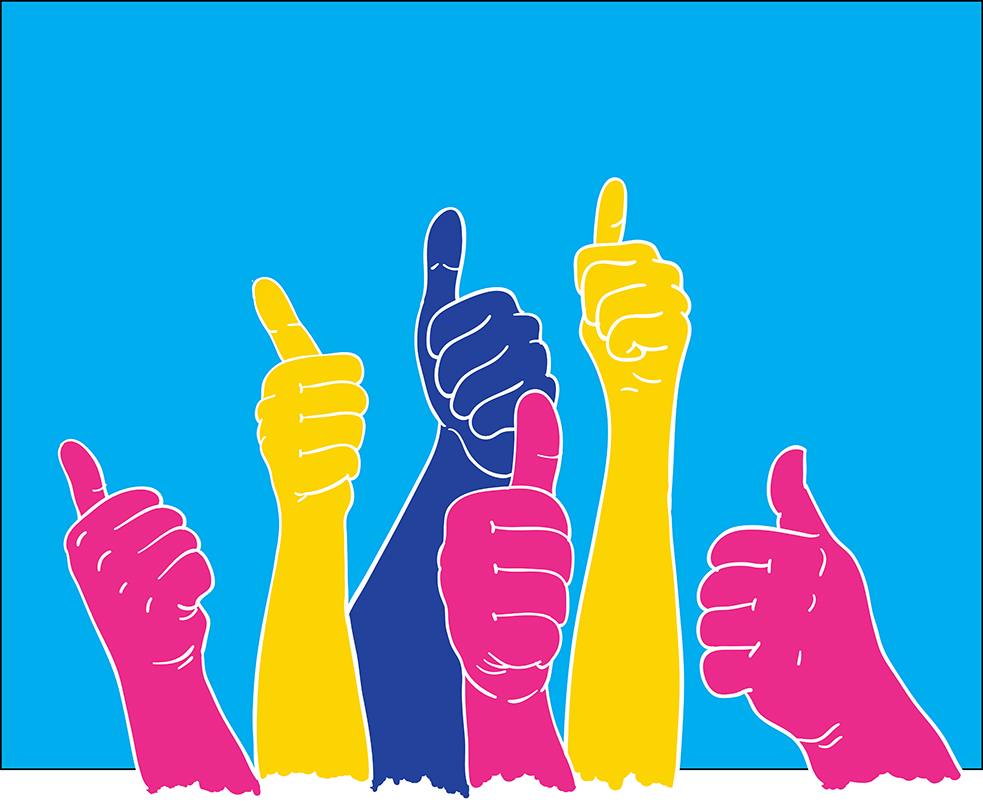
Shortly after model Geena Rocero gave the TED Talk “Why I must come out,” she was Skyping with an LGBTQ activist in Hong Kong. This activist mentioned how powerful it would be for Chinese speakers to be able to watch the talk.
Rocero logged on to TED.com to find out how she could get her talk translated. To her surprise, she found that Chinese subtitles were already live—along with subtitles in Hebrew, Romanian, Thai, Vietnamese and Spanish.
Today, Rocero’s talk is available in 28 languages. And as she travels the world speaking about LGBTQ issues with her organization Gender Proud, she sees the impact of that. “The places I’m going, there’s either no law at all about how you can change your name and gender marker on your legal documents, or a lot of steps before you can do it,” says Rocero. “People are becoming aware of the law that exists in the United States. Suddenly, they’re asking, ‘How come I can’t have that right?’ People are realizing that they can demand these rights.”
This is the point of TED’s Open Translation Project, a global volunteer effort that enables the amplification of ideas across languages and borders. When a talk goes live on TED.com, translators around the world have an open invitation to subtitle it in their language. Over time, OTP volunteers subtitle each talk in more and more languages.
Speakers are taking notice and reaching out to thank translation volunteers for their efforts. Rocero, for example, took to Facebook to publically thank the OTP network for amplifying her idea. Meanwhile, TEDxUNLV speaker Cortney Warren (watch her talk “Honest liars—the psychology of self-deception”) was so thrilled to find out that her talk was being translated by volunteer Adrienne Lin that she sent her a copy of her book and offered to do the same for anyone else who worked on the talk. “That’s such a generous service,” Warren said.
Repeat TED speaker Mikko Hypponen also sends personal thank-yous to his translators. He even translated two of his talks—“Fighting viruses, defending the net” and “Three types of online attacks”—into Finnish. “These translations made my talks accessible to a group of people that would otherwise miss them completely,” he says. “For example, my father has never studied English and wouldn’t be able to follow my talks.”
For his third talk, “How the NSA betrayed the world’s trust,” Hypponen reviewed the work of OTP volunteer Sami Andberg. He says it was quick and easy, with big benefits. “You can make sure the translation gets everything just right,” Hypponen says. “All speakers should do this for the languages they are fluent in.”
Keren Elazari reviewed the Hebrew translation of her talk, “Hackers: the Internet’s immune system,” created by volunteer Shir Ben Asher. “There are so many terms and idiosyncrasies that come from the hacker community—I knew it might be tricky to translate words like ‘hacktivism,’” says Elazari. “[Asher] did all the hard work—I tweaked a few words and messed up the time code. I didn’t realize how meticulous it is to make sure the timing is right.”
Reviewing her talk led Elazari to pay more attention to who is translating it, and into what languages. She is especially thrilled to see it subtitled in Persian, she says: “It’s cool to know that there are people in Iran listening to a talk from an Israeli.”
Lately, Elazari has gotten feedback on her talk from many corners of the globe. “I just got back from DEF CON, a big hacker conference,” she says. “I had people come up to me from Korea, Greece, Colombia. It’s one of fantastic qualities of TED—that an idea can reach a global audience. It’s not just that it’s online and accessible, but that it’s accessible in other languages too.”
When Martin Villeneuve gave the talk “How I made an impossible film” at TED2013, he became the first TED speaker from Quebec, Canada, where French is the official language but English is widely spoken. He jumped at the chance to translate his talk into French Canadian.
“I had hoped that French Canadian subtitles would be available within a few days of the release of my talk, but at least 10 other languages came first!” says Villeneuve. “That’s when I decided to translate my own talk.”
It turned out to be a fascinating undertaking. “English is my second language—I think first and foremost in French,” he says. “So I translated it the way I would’ve done the talk in my mother tongue, while respecting the spirit of the English version.”
The experience gave Villeneuve a deeper appreciation for the work each translator does to make ideas reverberate widely. “I feel the resonance,” he says. “I receive emails from people all around the globe, who found in my talk the inspiration to undertake their own impossible projects—not only in cinema but from education to engineering. That’s really the best compliment.”
Comments (6)